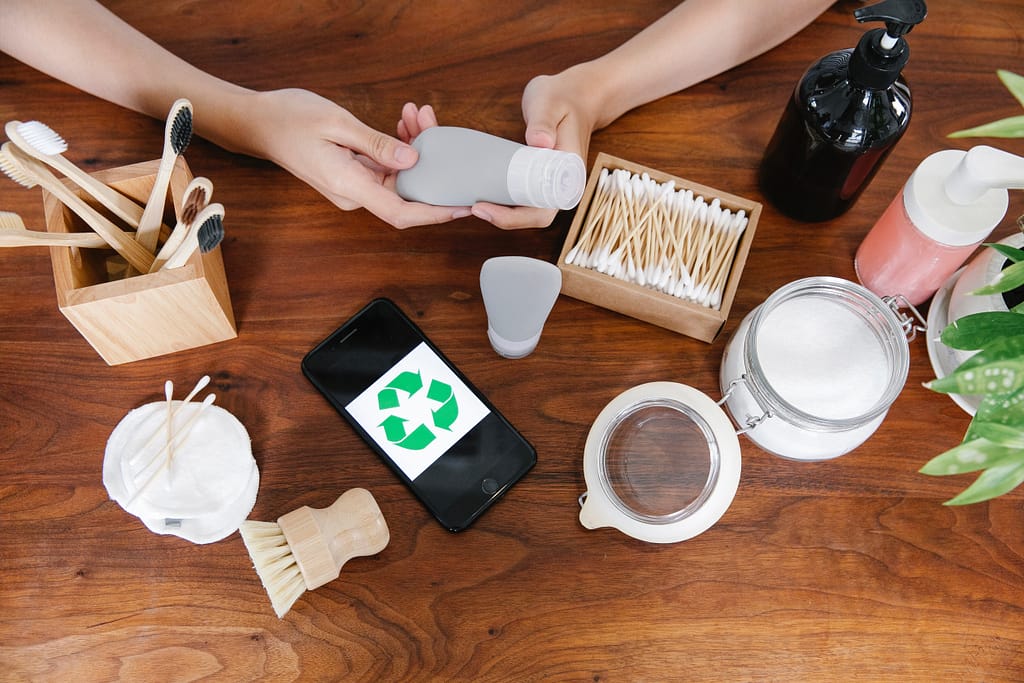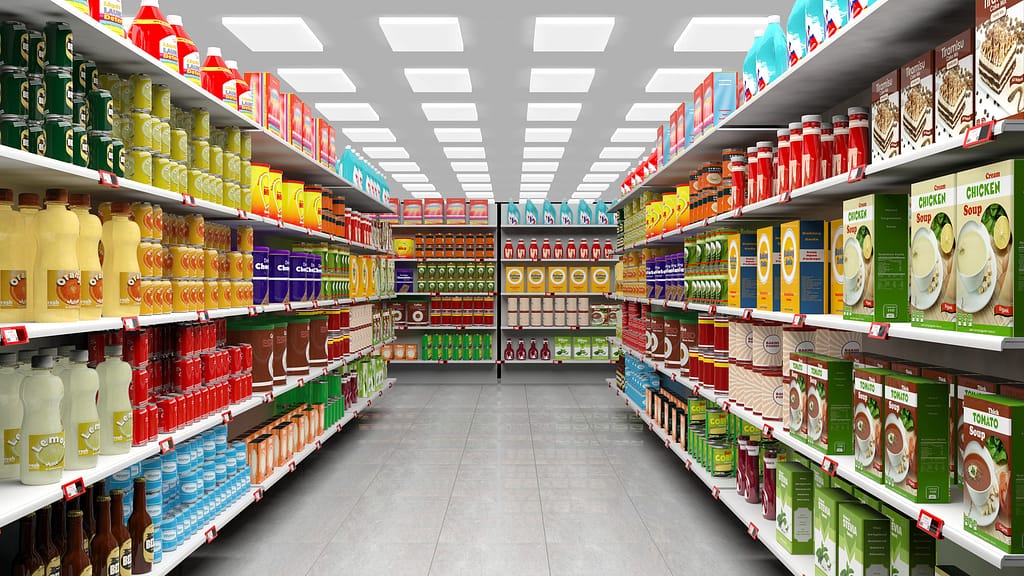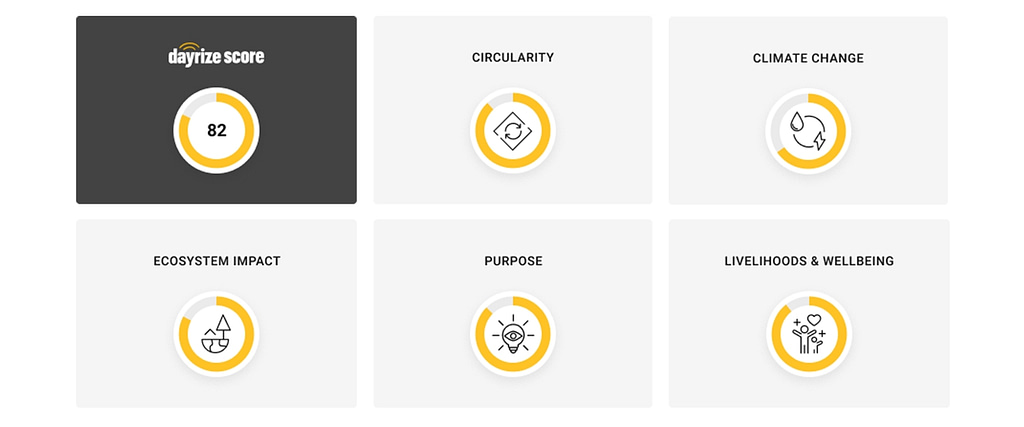Metabolic and Dayrize.com develop a new rapid sustainability assessment tool for products.
Over the past year and a half, Metabolic has collaborated with Dayrize.com, a new e-commerce platform launching in the UK this summer, to develop a first-of-its-kind rapid sustainability assessment tool. Our tool generates a robust and uniform sustainability performance score for any kind of product — from razors to dresses, boots to coffee mugs — allowing for easy comparison that is not possible between the eco-labels on the market.
At Metabolic, we are always looking for ways to strategically advance the global sustainability transition. We had several internal debates about whether directing our focus toward e-commerce — a justifiably maligned driver of one-click consumerism — was really one of the best ways to deliver on our mission. In the end, it is precisely because of the huge amount of impact e-commerce is responsible for that we decided it was a meaningful leverage point for systems transformation toward sustainability. Here’s the story of our newest venture.
The long shadow of consumption
It’s an uncomfortable truth: the products that we consume on a daily basis — to keep ourselves fed, clothed, and entertained — are one of the major causes of environmental destruction, climate change, and human rights abuses. In fact, researchers have estimated that 24% to 48% of humanity’s impact on the planet comes from the ‘footprint’ of the products and services we buy as individuals. Between 20 and 40 million people are also being exploited as slaves in the supply chains that generate these goods. It’s not a surprise, then, that driving toward sustainable consumption is one of the objectives of the Sustainable Development Goals and is a priority for the European Commission.

We have known that we need to consume less overall for quite some time: Buy Nothing Day was initiated in 1992 as an international day of protest against the impacts of consumerism. That said, some level of consumption is also inevitable. We should not need to feel guilty for fulfilling perfectly reasonable needs and desires like buying food or new underwear, or upgrading our computers once in a while.
Greenwashing and eco-label proliferation
No one wants to be confronted with the ugly realization that the chocolate they just enjoyed possibly led to a family of orangutans being violently evicted from their forest home in Borneo. Palm oil, used in everything from lipstick to, yes, chocolate, is a major cause of deforestation in Indonesia. It seems like every week there is a new product-related impact to keep an eye on.
Brands have diligently responded to mounting public eco-anxiety with an ever-proliferating range of “sustainable” products. But greenwashing, the practice of exaggerating eco-friendly claims, or even making statements that are entirely false, is rife, and as many as 40% of environmental claims could be misleading consumers.
To complicate things further, even if brands provide verified information, making sense of it can be confusing and complex. More than 400 ecolabels cover different issues of concern and use different methodologies for assessing impact.
I was recently hunting for dishwasher tablets at the grocery store and noticed that a handful of new options had appeared, all boasting eco-labels. Even as a sustainability expert with years of experience, I was not able to quickly determine which of these products was genuinely better for the environment. Without knowing the methodologies behind the eco-labels, I had no insight on the phosphate content, toxicity, or carbon footprint of any of the products – just to name a few relevant impact areas that I would want to consider. Standing in the aisle, I could only quickly assess which tablets had an eco-label at all – and, of course, the price, which varied wildly. Shoppers may have the best of intentions, but without a common, transparent method of comparison, there is simply no way to determine which product has the lowest impact.

Cutting through the complexity
Knowing how incredibly important, yet difficult, it is to make purchasing decisions that will meaningfully drive down the impact footprint of our consumption, we saw our partnership with Dayrize as an exciting opportunity to develop a solution that could cut through all of this complexity: a rapid product sustainability assessment tool. The challenge was significant. Our goal was to develop a tool that could automatically, uniformly, and robustly evaluate the sustainability performance of any product while not placing too severe of a burden on the brands supplying the product data.
The current industry-standard approach for assessing the sustainability of products is something called a Life Cycle Assessment (LCA). This kind of analysis takes months of work and typically costs tens of thousands of dollars. Most companies, no matter how committed to sustainability, cannot afford such an expensive assessment for all of their products, which is one of the reasons that most products do not have a publicly available carbon footprint. Our goal with the Dayrize sustainability assessment tool was to essentially create a rapid version of an LCA that fills data gaps with smart approximations. We also wanted to go even further than what is typically included in an LCA, extending our analysis to, among other elements: social metrics, an assessment of product circularity, and geospatial evaluations of water stress and biodiversity loss.

For each product listed on Dayrize, brands fill out a detailed survey covering material composition, sourcing locations, production processes, and any ecolabels or certifications awarded to the product. Our software parses this data and runs it through algorithms that additionally draw on a range of external datasets from world-leading institutes, including the International Labour Organization, UNICEF, the World Bank, Ecoinvent, the World Resources Institute, and IUCN. This calculation ultimately results in the Dayrize Score, a single number ranging from 0 – 100 that captures how closely a product aligns with our definition of product sustainability:
A truly sustainable product is one that fulfills a meaningful purpose, is designed in a circular manner, is non-hazardous, responsibly sourced, fully recyclable, regenerative, and supports the health and wellbeing of people at every stage of its life cycle.
With such an ambitious definition, it is very difficult to achieve the maximum score of 100. In fact, even a score of 20, which is the cutoff for being listed on Dayrize, is considered pretty good. That’s partly because aside from performance on the score itself, all brands listed on Dayrize have already made legal assurances that their products comply with eight baseline criteria, including no microplastics, no carcinogenic toxins, and no slave or child labor. These criteria ensure that some of the most problematic issues of concern are addressed across the entire product portfolio.

Bringing consumption within planetary boundaries
Our ultimate goal — and Dayrize’s mission — is to bring consumption within planetary boundaries. Our first step was to create radical transparency on product impacts for the benefit of both shoppers and brands. I am most excited about our tool’s ability to rapidly estimate the carbon and water footprint of each product and compare this against a personal “planetary budget.” This means we can inform shoppers how much of their annual carbon or water budget any given purchase will use, giving them the ability to genuinely steer their purchasing decisions based on our planet’s carrying capacity. From here, we will be exploring how we can best present this information to drive shopping behavior in a lower-impact direction.
Many people do not know that they are overconsuming simply because they are not confronted with the data. Using Dayrize’s planetary budget feature, you can directly see how much that cashmere sweater or electric toothbrush will use of your annual greenhouse gas emissions budget. We plan on introducing gamification elements so that users can get credits back onto their budget through actions like planting trees, refurbishing products, or depositing packaging materials at drop-off points. We eventually want to show the trade-offs between certain choices. For example, if you lower the average temperature in your house during winter, you can buy an extra pair of jeans.

The path forward
As we work with brands and provide them feedback on how they can improve their score, we hope to drive a virtuous feedback cycle, leading to the redesign of products and their supply chains, and ultimately, measurably reducing impact. After months of onboarding the first products, sharing the results with brands was a nail-biting moment. We had thought they would not want to be listed on the platform because of low scores, but in fact, they were pleased with the initial results. That kind of engagement was heartening for our team because brands do see Dayrize as a pathway to improve their sustainability. If our assumptions are correct, we should see an increase in the average score of the products offered on Dayrize over time.
It’s not just the brands that have committed to walking the path of continuous improvement. Our scoring system and methodology will continue to evolve with new research and technological advances.
We have engaged with many stakeholders in the sustainability space to review our methodology and give us critical feedback on its completeness and our approach. Improving efficiency in our scoring system is another important priority going forward. We are considering how satellite data and blockchain-verified data could potentially lead to even more accurate scores while reducing the data-entry burden for brands. Being the total sustainability nerds that we are, we are excited to continue building and improving the tools we have built thus far while keeping up to speed with the latest science. The Dayrize Score will be reviewed and refined on an annual basis. If you are interested in engaging with us along this process, please do get in touch. Seriously.
Eva Gladek is the founder and CEO of Metabolic as well as the chief sustainability officer at Dayrize, which was co-founded by Metabolic.




